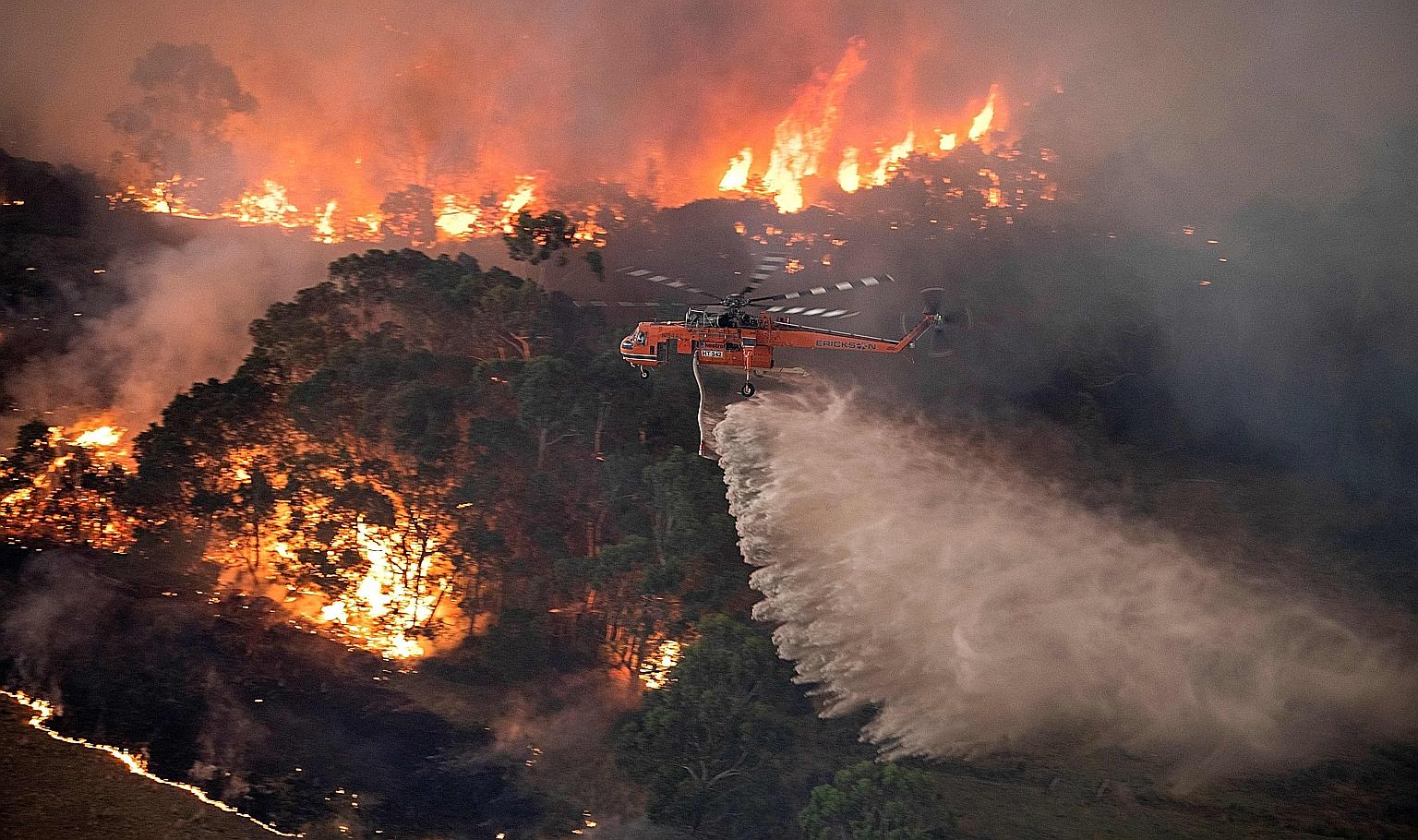Bush fire crisis hit three in every four Australians: Survey
Sign up now: Get insights on Asia's fast-moving developments

A firefighting operation in Victoria, Australia, in December. Recent rain has extinguished most of the blazes, but the country is still counting the economic and environmental cost of the wildfire season. The crisis affected almost 18 million people, while Prime Minister Scott Morrison's handling of it has hurt his popularity, according to an Australian National University study.
PHOTO: AGENCE FRANCE-PRESSE
SYDNEY/CANBERRA • Three in four Australians - almost 18 million people - were affected by the country's deadly bush fire crisis, according to a survey released yesterday that also pointed to plummeting support for the government and for coal projects.
The Australian National University study showed the vast human scale of the five-month crisis, which killed more than 30 people and destroyed thousands of homes.
"Nearly every Australian has been touched by these fires and many of us will be living with the effects for years and years to come," said lead social researcher Nicholas Biddle.
The poll of 3,000 people indicated that 14 per cent of the adult population was directly affected - with their homes lost or damaged, or families forced to evacuate.
Some 15 million Australians had indirect exposure, including being affected by bush fire smoke or having holiday plans hit.
While recent rain has finally extinguished most of the blazes that plagued the nation, Australia is still counting the economic and environmental cost of the unprecedented wildfire season.
The blazes burned out an area about the size of England, destroyed more than 3,000 homes, killed an estimated one billion animals and wreathed majors cities including Sydney and Melbourne in toxic smoke, often for days on end.
The scale of the impact will be cause for concern for the government, which has struggled to shake public perception that it botched the crisis response and cares little for addressing climate change.
Scientists say the fires were fuelled by drought and unfavourable weather conditions exacerbated by climate change.
Prime Minister Scott Morrison was criticised for going on holiday to Hawaii in the middle of the disaster and refusing to rule out deeper cuts to carbon emissions.
He is now under increased pressure to abandon his pro-fossil fuel agenda, which includes using taxpayer dollars to fund a study into the viability of opening a new coal-fired plant.
His government is also walking back promises to achieve a budget surplus as the fires and the coronavirus outbreak weigh on growth.
Mr Biddle said: "Only 27 per cent of respondents reported that they were confident or very confident in the government."
This is a drop of 11 percentage points in three months. "This is one of the largest declines in confidence I have seen in such a short period of time," he added.
Among people who voted for the government at the last election, support for building new coal mines plummeted from 72 per cent before the crisis to 57 per cent in January.
The Australian National University survey backs up other recent polls that show Mr Morrison's handling of the wildfire crisis has taken a toll on his popularity.
"When it came to confidence in party leaders, Prime Minister Scott Morrison's score was 3.92 out of 10," Mr Biddle said. "This is a net negative review of the Prime Minister and a substantial decline in his popularity from 5.25 out of 10 (in June)".
The two-week survey began on Jan 20. It did not provide a margin of error.
AGENCE FRANCE-PRESSE, BLOOMBERG


